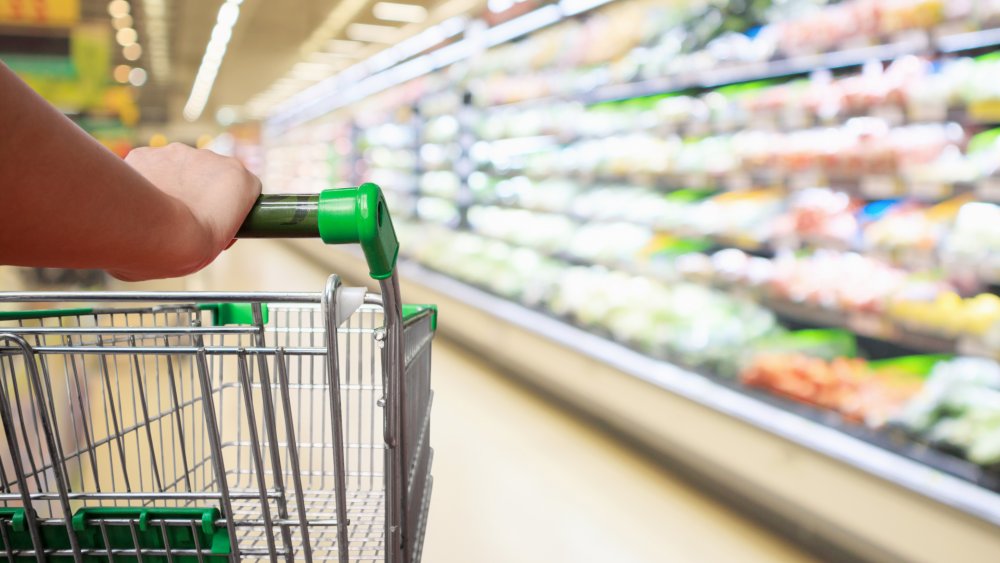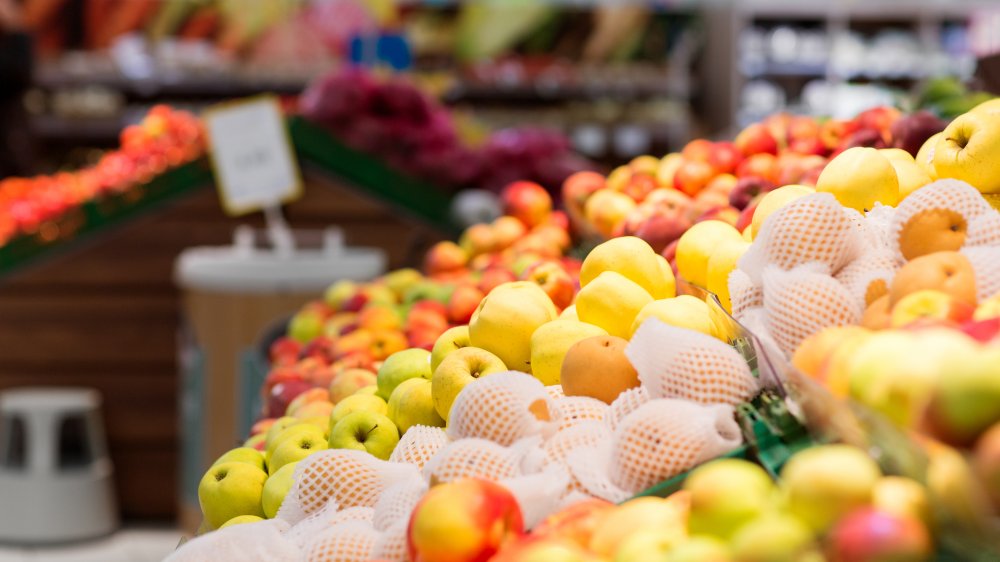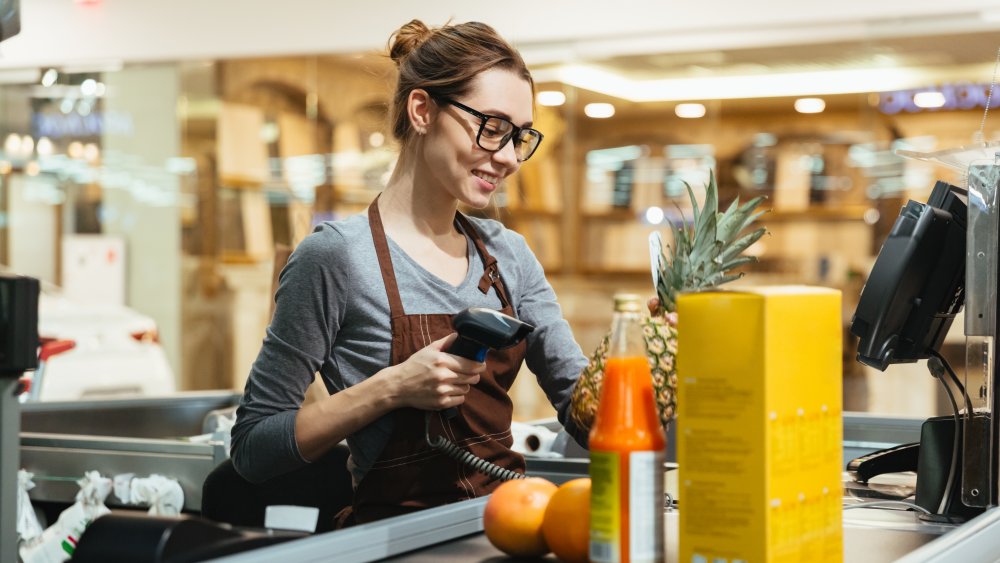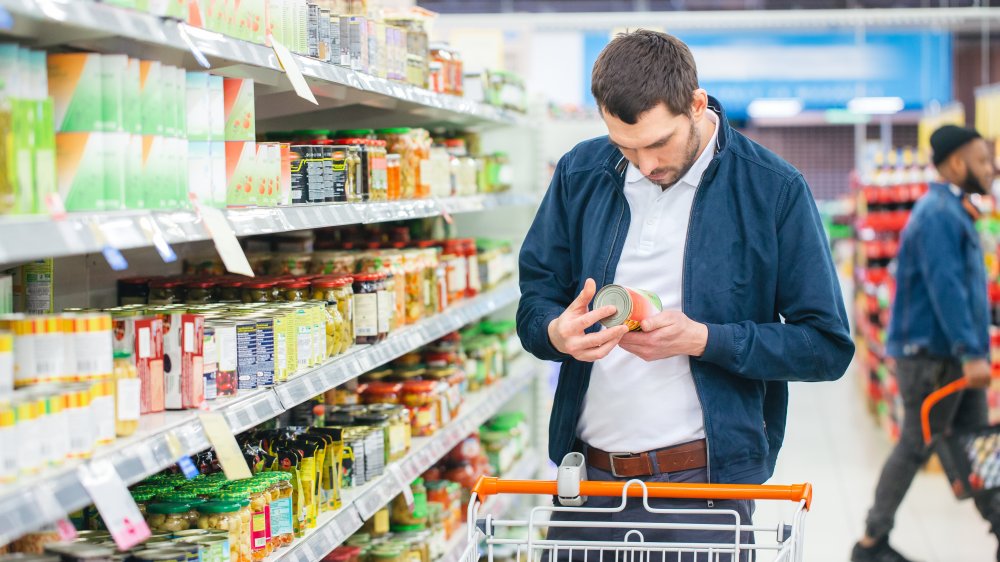The Real Reason You Shouldn't Go To The Grocery Store For Two Weeks
People in 42 states are under orders to stay at home unless making an essential trip — to the grocery store, for example, or to work at an essential job (via CBS). Governors in these states are trying to limit human contact and slow the spread of COVID-19.
White House officials took these state-level measures a step further on Saturday, April 4, according to Deadline. President Donald Trump's COVID-19 response coordinator, Dr. Deborah Birx, announced at a press conference that people should even stay away from grocery stores and pharmacies for the next two weeks. Officials expect the U.S. outbreak of the disease to peak sometime in the next two weeks, so now is the time to do "... everything you can to keep your family and your friends safe," Birx said.
The Centers for Disease Control and Prevention (CDC) advises people to wash their hands with soap and water for 20 seconds, keep distance from other people, and to wear cloth face masks in public — in addition to staying home as much as possible.
Avoid shopping now to help flatten the curve
Trump emphasized that the next two weeks are critical. "This will probably be the toughest week — between this week and next week," he said on Saturday. But health experts have said the president's response to the COVID-19 outbreak was too slow, as reported in The Washington Post. The United States has more cases than any other nation in the world as of Monday, April 6, with over 357,000 cases and over 10,000 deaths, according to The New York Times.
Health experts say predicting an epidemic's peak is tricky because it depends on how well people maintain social distancing and other measures to prevent the spread of the virus. The disease is also hitting some states later than others. The U.S. is a "... very diverse country with a hot spot in New York right now and warm spots," infectious disease specialist Dr. William Schaffner told CNN on March 26. "In the next three to six weeks, all those areas will start to surge or will have their curve depressed or blunted by the social distancing that's going on."
There is an added risk for grocery store employees
With most retail shops and public gathering places closed, the grocery store is the one place left where people are together in close quarters,and often in larger numbers than the recommended 10 people or less. While few workers have tested positive for COVID-19, that was in part due to lack of testing. As more tests are given, dozens of grocery workers have tested positive, resulting in temporary store closures in some instances (via The Washington Post).
Many grocery workers say they aren't provided the protective gear to deal with hundreds of customers a day, and the biggest threat of infection at the grocery store is not food or product packaging, but other people, including the grocery workers. The virus can be transferred in many ways, such as through the exchange of money (pay with a card, and make sure to disinfect it when you get home) or a cough or sneeze, which have a higher likelihood of spreading the virus (via The Atlantic).
This puts grocery workers in a difficult position, where they can't not to go to work, as people need to buy groceries — which are more of a necessity than many other industries labeled "essential" and allowed to remain open. However, they are in danger of infection every time they go to work, and many of them are working longer hours and more shifts due to increased demand. Also, tired workers often have run down immune systems.
Grocery workers lack personal protection from infection
Grocery workers are not considered first responders and therefore have more difficulty accessing protective equipment. Additionally, as recently as the end of March, some stores were not allowing workers to wear gloves because the stores wanted to preserve the "appearance of normalcy," according to a worker at Trader Joe's. A spokesperson for Trader Joe's told The Atlantic that, "... the CDC does not recommend use of gloves in a retail setting," though the company says employees are allowed to wear them. Giving them the benefit of the doubt and assuming workers are now wearing gloves, the end of March makes the next two weeks line up with the expected peak that health officials are warning about.
In addition to grocery workers that may be infected, there is also the potential for other customers to be infected. A Whole Foods worker in Atlanta overheard a customer say, "I'm pretty sure I have it; I'm going to the doctor now. I just have to stop at Whole Foods first." People often forget safety protocols that they aren't used to, particularly in terms of activities that may seem automatic, such as grocery shopping.
As a customer, not going to the grocery store during the next two weeks is beneficial to your health and the only way grocery workers can have protection since they are in a position where they often can't protect themselves.



